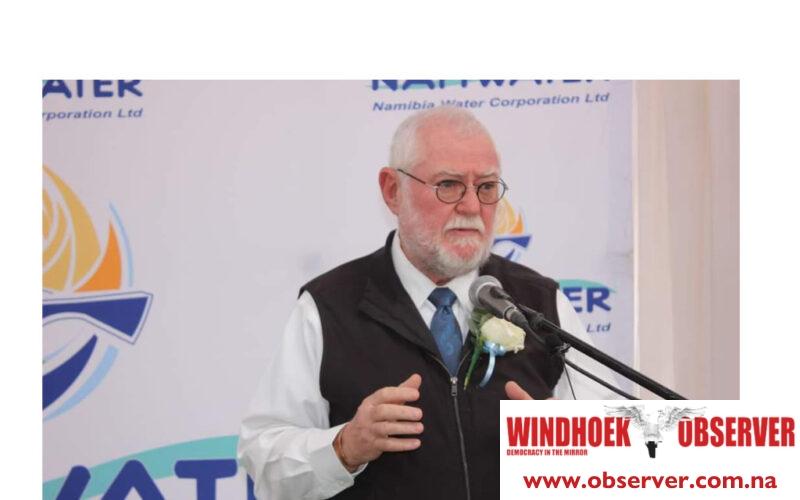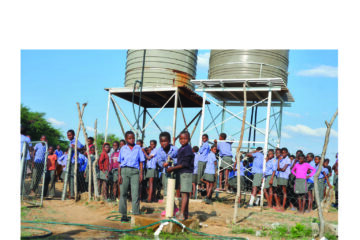Niél Terblanché
Namibia is set to overcome its challenges and build a brighter, more prosperous future for all its citizens by providing access to safe, clean water.
Calle Schlettwein, the Minister of Agriculture, Water and Land Reform officiated the groundbreaking ceremony for the N$250 million Ohangwena II Wellfield Water Supply Scheme in Oshandi.
He said the project aims to enhance water accessibility across the region, providing a vital resource to communities and supporting economic growth.
The project includes the construction of 203 kilometres of pipelines, the installation of four boreholes, and the development of three concrete reservoirs in Omakango, Ondobe, and Eenhana.
It also encompasses the construction of six elevated towers, new pump stations, and a reverse osmosis plant at Eenhana.
“This comprehensive scheme is designed to meet the growing water demand due to population increases and economic activities in the area,” he said.
Schlettwein stressed the importance of the Ondangwa-Omutsegwonime bulk water supply scheme, which serves as a lifeline for the Oshana and Oshikoto regions.
“This strategic infrastructure supports both urban centres and rural communities, addressing the rising water needs while contributing to regional development,” he added.
The minister also acknowledged the challenges posed by theft and vandalism, which have resulted in significant financial losses and disrupted water supply to communities.
He urged traditional, regional, and local authorities to collaborate in protecting water infrastructure, emphasizing that it belongs to the people and is essential for their well-being.
The project is a demonstration of the power of public-private partnerships, with NamWater funding it at N$91 million.
Schlettwein commended the efforts of stakeholders, including Homefin Properties cc and China Jiangxi International, for their commitment to ensuring a sustainable water supply for the region.
He stressed the critical role of reliable water infrastructure in enabling socio-economic development and improving living standards.
As part of a broader strategy to enhance water supply security, this initiative aims to modernize infrastructure, address current deficits, and prepare for future demands.
Schlettwein called on communities to promote responsible water usage and safeguard the infrastructure to ensure the sustainability of water resources for present and future generations.
He reiterated the government’s commitment to achieving 100% access to safe, clean water, highlighting the project’s role in bringing Namibia closer to this goal.
The groundbreaking ceremony marked the start of a multi-faceted water infrastructure development program, aimed at matching delivery with demand and fostering socio-economic growth throughout the region.




